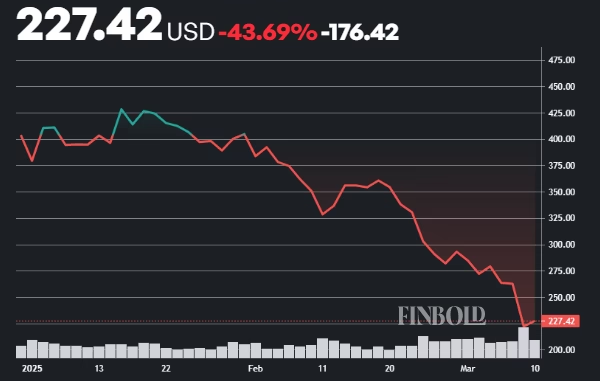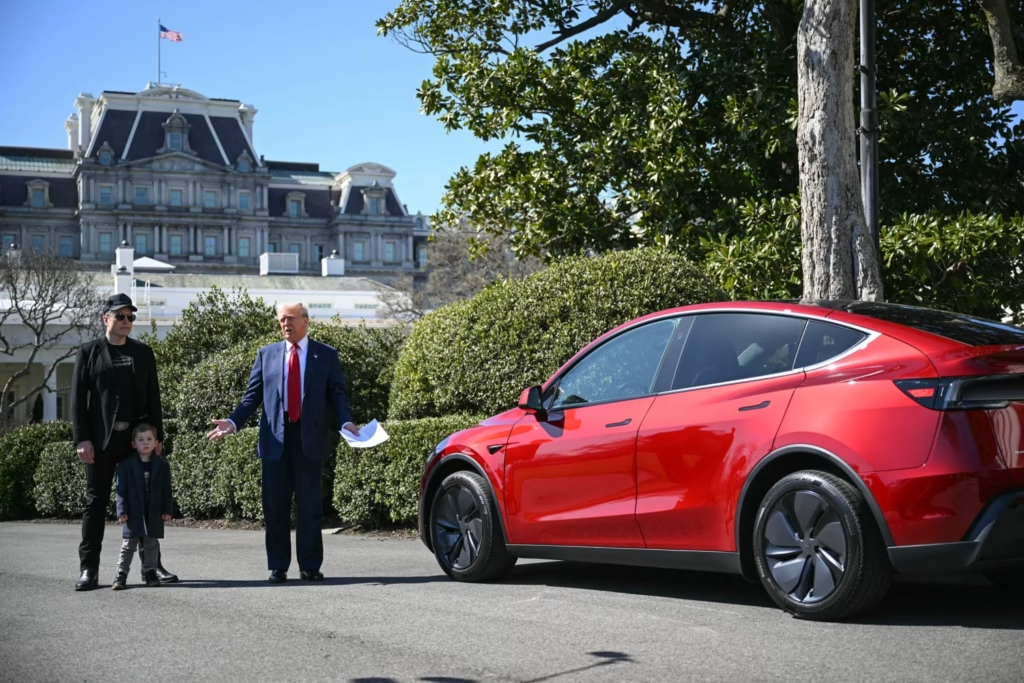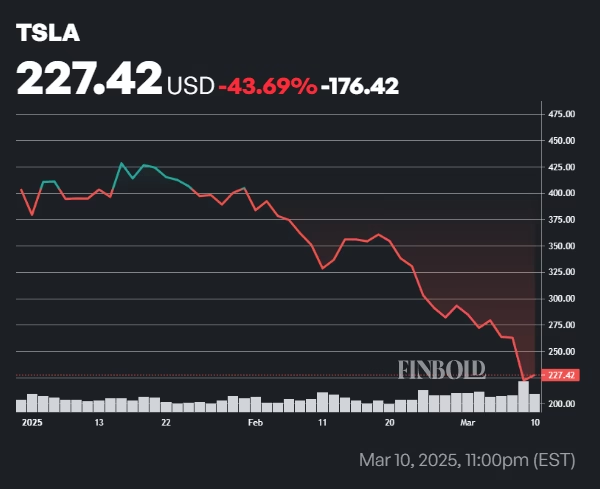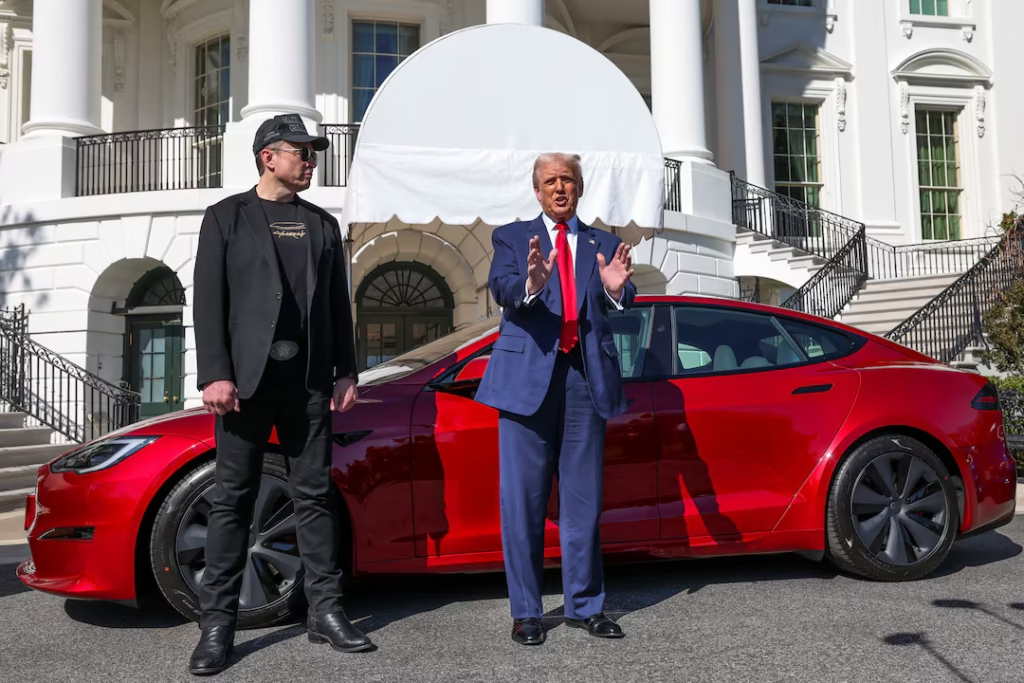
In recent months, Tesla, Inc. has experienced a significant decline in its stock value, a downturn closely linked to CEO Elon Musk’s public affiliation with former President Donald Trump. This association has not only impacted investor confidence but has also led to widespread public backlash, affecting Tesla’s brand image and sales performance.

The Stock Market Reaction
Since December 2024, Tesla’s market capitalization has nearly halved, plummeting from $1.54 trillion to $777 billion by March 2025. This 49% decline is unprecedented in the automotive industry, surpassing previous regional sales drops experienced by other automakers in past diplomatic disputes. JPMorgan analysts have attributed this downturn to a global decline in sales and branding issues linked to Musk’s political associations with Trump.
Despite a brief rally, concerns about Tesla’s valuation persist. The stock still appears overvalued, trading at 89 times this year’s projected earnings. Analysts are skeptical, with some predicting a 4% revenue drop due to weakened demand. While proponents highlight Tesla’s potential in AI and robotics, its premium valuation compared to established AI companies raises concerns.

Public Backlash and the ‘Tesla Takedown’ Movement
Elon Musk’s political involvement has sparked significant public backlash, culminating in the “Tesla Takedown” movement. Initiated in early 2025, this decentralized protest targets Tesla and Musk, organizing demonstrations at Tesla stores across the United States and Europe. The movement urges the public to divest from Tesla by selling their vehicles and shares, aiming to economically impact Musk and challenge his political influence.
While the protests have been largely peaceful, there have been instances of vandalism targeting Tesla properties. For example, a Tesla store in Loveland, Colorado, was vandalized multiple times, and in Salem, Oregon, Molotov cocktails were thrown at a Tesla store, causing significant damage. Similar incidents have occurred in France and near Boston, where Tesla vehicles and charging stations were set on fire.
Celebrity Critiques and Media Attention
The situation has also attracted attention from media personalities. Late-night host Jimmy Kimmel humorously critiqued Musk on his show, suggesting that Musk might need to fire himself due to Tesla’s poor performance. Kimmel highlighted the negative public sentiment toward Tesla, with reports of vandalism against Tesla vehicles and charging stations. He also mentioned President Trump’s unexpected support for Tesla, despite his previous criticisms of electric cars, suggesting that Trump’s announcement to purchase a Tesla was a publicity stunt.

Impact on Sales and Market Position
The backlash has had tangible effects on Tesla’s sales. In Europe, Tesla has experienced a significant decline in sales, with reports indicating a 50% drop in certain markets. This decline is attributed to growing anger toward Musk’s political involvement and the subsequent damage to Tesla’s brand image.
Despite these challenges, Tesla remains the most valuable car company globally. The company continues to explore future prospects, such as robotaxi initiatives and the development of Optimus, a humanoid robot. However, the recent downturn has raised questions about Tesla’s valuation and its ability to maintain its market position amid political controversies.
Conclusion
Elon Musk’s affiliation with former President Donald Trump has had profound implications for Tesla, Inc. The company’s stock has experienced a historic decline, public perception has soured, and sales have dropped in key markets. As Tesla navigates this challenging period, it faces the critical task of restoring its brand image and reassuring investors of its long-term viability.

Leave a Reply